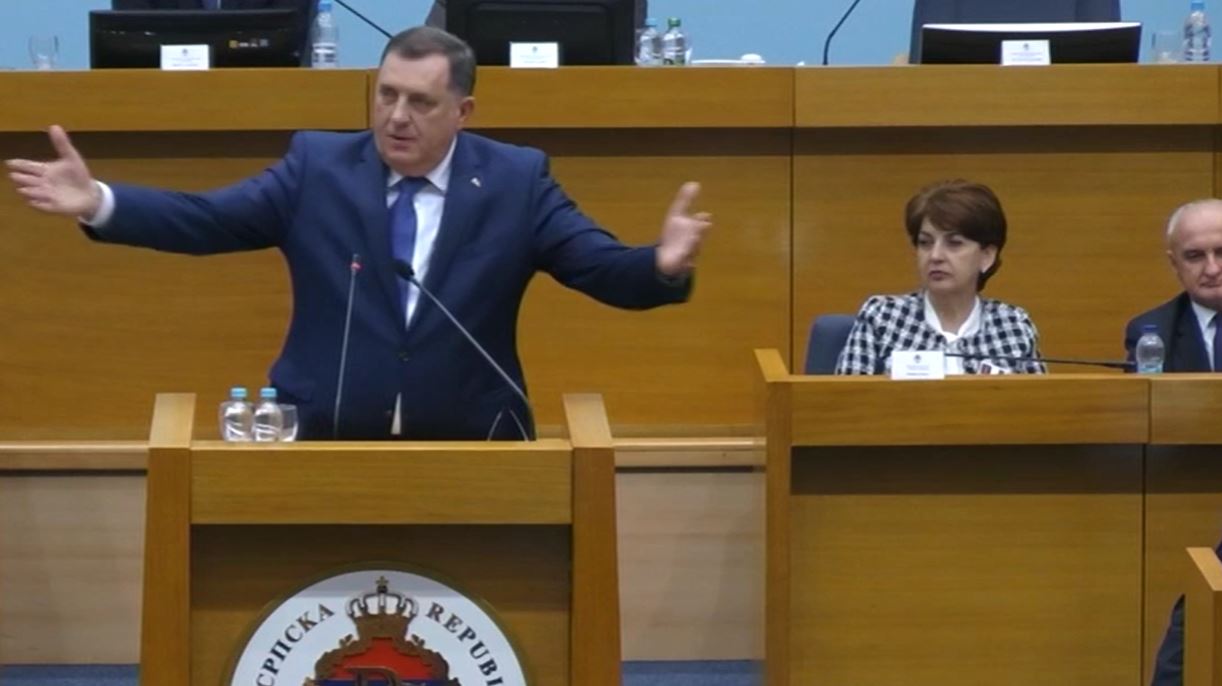
The Bosnian Serb entity parliament vetoed a memorandum aimed at improving the security cooperation agreement between the US and Bosnia, on Wednesday, calling it harmful to vital interests of Republika Srpska (RS), as the semi-autonomous entity is called.
Milorad Dodik, the Serb member of Bosnia's tripartite Presidency and the Bosnian Serb leader, said the agreement which was passed by his Croat and Bosnian counterparts on July 22, was “very harmful” to the Serb-dominated entity's vital interests, calling on RS MPs to support his decision and reject it with a two-thirds majority vote.
Apart from this agreement, the RS National Assembly, as the entity parliament is called, also rejected the Agreement on Bosnia's participation in the International Student Assessment Program (PISA) 2021 and the Decision on Bosnia's accession to the International Reading Literacy Development Survey (PIRLS) 2021.
Following the 1992-1995 war in Bosnia, the Dayton Peace Agreement subdivided the country into two semi-autonomous entities: the Bosniak-Croat shared Federation (FBiH) and the RS.
This left the country with a weak central government and a tripartite Presidency consisting of representatives of each of the three constituent peoples. This collective head of state is in charge of Bosnia's foreign policy.
The security memorandum in question deals with further enhancement of cooperation between Bosnia's Security Ministry and the US Department of Homeland Security in the use of travel information.
The memorandum is especially important as it strengthens Bosnia's cooperation with the US in the field of organised crime and counter-terrorism.
Dodik believes that the exchange of travel information is contrary to RS interests and Bosnia's Constitution.
"This Memorandum excludes any possibility of engaging the RS police and any other RS agency on these matters, and that is the main reason why I thought this Memorandum should not receive our support," Dodik said addressing the emergency session.
RS Interior Minister Dragan Lukac said that his Ministry supports all initiatives contributing to the fight against terrorism and organized crime, but that "the Memorandum approved by the Presidency [...] neither protects the basic human rights of Bosnian citizens nor does it respect the constitutional structure in Bosnia."
Thus the RS entity parliament rejected three decisions adopted by the collective head of state aimed at improving the educational system in the country and the security cooperation between the US and Bosnia and Herzegovina.
Kakvo je tvoje mišljenje o ovome?
Učestvuj u diskusiji ili pročitaj komentare





 Srbija
Srbija
 Hrvatska
Hrvatska
 Slovenija
Slovenija







